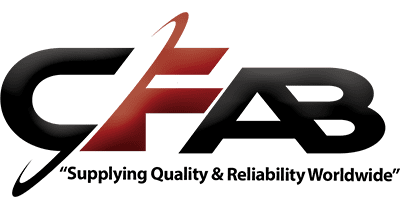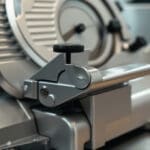Introduction
Automated packaging systems are transforming industries worldwide by boosting efficiency, enhancing production speeds, and reducing human labor. Here’s a quick overview of how they are making an impact:
- Increased Efficiency: Automated systems streamline packaging processes, reducing the time and resources needed.
- Enhanced Safety: Minimizing human intervention helps reduce workplace injuries.
- Greater Precision: Automation ensures consistent packaging quality.
- Cost Savings: Over time, businesses save on labor costs and reduce material waste.
- Scalable Solutions: Easily adaptable to various industries from e-commerce to pharmaceuticals and food processing.
The shift towards automation has revolutionized how industries operate. Before this, human labor played a crucial role in ensuring everything ran smoothly. Now, whether at home or in large manufacturing plants, automated systems are doing the heavy lifting. Especially in sectors like food and beverage, e-commerce, and pharmaceuticals, these automated systems handle everything from filling and sealing to wrapping and labeling.
If your business needs state-of-the-art food processing solutions, Beth-El Machinery Ltd. offers specialized systems designed for efficiency and safety.

What is Packaging Automation?
Packaging automation refers to the use of automated systems to perform repetitive tasks in the packaging process. These systems are designed to handle everything from filling and sealing to wrapping and labeling with minimal or no human intervention.
Automated Systems
Automated packaging systems incorporate various machines that work together to streamline the packaging process. Key components like Programmable Logic Controllers (PLCs), sensing devices, and relay motors ensure that each step is executed smoothly and efficiently. PLCs act as the brain of the system, collecting data from sensors and making real-time decisions to keep the packaging line moving.

Repetitive Tasks
One of the primary advantages of packaging automation is its ability to handle repetitive tasks. For example, in the food and beverage industry, automated systems can seal food into containers or fill bottles with liquid at a much faster rate than manual labor. This not only speeds up production but also reduces the risk of human error.
According to a report by PMMI, 67% of brand manufacturers have already heavily automated their end-of-line operations. This trend is expected to grow, with 85% of manufacturers looking to expand their automated solutions.
Strategic Focus
By automating repetitive tasks, businesses can shift their strategic focus to more critical areas like product development and customer service. Automation frees up human resources, allowing companies to innovate and improve their products and services. Additionally, automated systems can adapt to different packaging needs, making them versatile across various industries.
In the world of e-commerce, for example, automated packaging systems help businesses keep up with high demand and quick turnaround times. As noted by Scott Keefauver, Global Marketing Director in Fulfillment at Sealed Air, automation is essential for balancing the transition from brick-and-mortar stores to e-commerce.
If you’re in the food processing industry, consider Beth-El Machinery Ltd. for specialized food handling systems that prioritize efficiency and safety.
Next, let’s explore the Benefits of Automated Packaging Systems.
Benefits of Automated Packaging Systems
Automated packaging systems have transformed how industries handle packaging processes. They offer several key benefits that make them indispensable.
Efficiency
One of the standout benefits of automated packaging systems is their ability to enhance production speed. Unlike manual processes, automated systems can run at full capacity, significantly improving output levels. For instance, the CVP Impack by Sparck Technologies can create up to 500 boxes per hour, while the CVP Everest can go up to 1,100 boxes per hour. This kind of speed is crucial, especially in high-demand industries like e-commerce and food processing.
Precision
Automated systems excel in precision. They ensure that each package is consistent in size, weight, and labeling. This reduces errors and the need for rework. For example, the auto-boxing technology from Sparck Technologies uses 3D scanning to determine the minimum box size required for each order, ensuring a perfect fit every time. This level of precision is hard to achieve with manual labor.
Worker Safety
Another significant advantage is improved worker safety. Automated systems take over repetitive and physically demanding tasks, reducing the risk of workplace injuries. This allows workers to focus on more strategic tasks, enhancing overall job satisfaction and workplace morale. As noted in industry reports, reducing manual labor also addresses labor shortages, making it easier for companies to maintain a steady workflow.
Cost Reduction
Automated packaging systems can lead to substantial cost savings. By optimizing packaging processes, companies can reduce labor costs and minimize the need for excess packaging materials. For instance, using fit-to-size packaging technology can save up to 92 truckloads a year, as noted in a case study involving the CVP Impack. These savings can add up to more than half a million dollars annually.
Material Waste Reduction
Lastly, automated packaging systems are excellent for reducing material waste. Precise measurements and efficient use of materials mean less waste ends up in landfills. This is particularly important for companies focusing on sustainability. Automated systems can also incorporate eco-friendly materials, like recyclable paper, further reducing environmental impact.
Automated packaging systems offer unparalleled benefits in efficiency, precision, worker safety, cost reduction, and material waste reduction. These advantages make them a smart investment for any industry looking to optimize its packaging processes.
Next, let’s delve into the Key Components of Automated Packaging Systems.
Key Components of Automated Packaging Systems
Automated packaging systems are complex and involve several key components that work together seamlessly. Each component plays a vital role in ensuring efficiency, accuracy, and speed. Let’s break down the main elements:
Filling
Filling is the process of placing the product into its primary packaging. This could be anything from liquid into bottles to powder into sachets. Automated filling machines ensure that each package contains the exact amount of product, minimizing waste and maximizing consistency. For instance, in the food industry, Beth-El Machinery Ltd. offers advanced filling systems that are both hygienic and efficient.
Wrapping
Wrapping involves covering the product for protection and presentation. Automated wrapping machines can handle various materials like plastic film, paper, or foil. These machines are designed to wrap products quickly and securely, reducing the risk of damage during transit. For example, shrink systems from Beth-El Machinery Ltd. are ideal for food products, ensuring they are tightly sealed and fresh.
Labeling
Labeling is crucial for providing essential information about the product, such as ingredients, expiration dates, and barcodes. Automated labeling machines can apply labels accurately and at high speeds. This not only ensures compliance with regulations but also enhances the product’s appearance. Inline printers, like those offered by Beth-El Machinery Ltd., can print graphics, text, and barcodes directly on the packaging.
Palletizing
Palletizing is the process of stacking packaged products onto pallets for easier handling and shipping. Automated palletizing systems can arrange packages in optimized patterns, maximizing space and stability. These systems reduce the need for manual labor and speed up the preparation for shipment. For instance, the CVP Impack can create right-sized boxes every 7 seconds, significantly boosting productivity.
Sorting
Sorting involves organizing products based on specific criteria like size, weight, or destination. Automated sorting systems use sensors and conveyors to direct products to the correct location. This ensures that orders are fulfilled accurately and efficiently. Sorting is especially critical in e-commerce and logistics, where quick and precise order fulfillment is essential.
Sealing
Sealing is the final step in the packaging process, ensuring that the package is securely closed. Automated sealing machines can handle various sealing methods, such as heat sealing, adhesive sealing, or tape sealing. Proper sealing is crucial for product protection and shelf life. Automated systems like the CVP Everest can seal, weigh, and label boxes in one seamless process, every 3 seconds.
Automated packaging systems integrate these components to create a streamlined, efficient, and reliable packaging process. By automating these key tasks, businesses can achieve higher productivity, reduced labor costs, and improved product quality.
Next, we’ll explore how automated packaging systems have revolutionized the food processing industry.
Top 5 Industries Transformed by Automated Packaging Systems
Ecommerce
The rise of ecommerce has driven a massive need for efficient packaging solutions. Automated packaging systems help online retailers meet high demand and fast shipping expectations. For example, Omoda, a shoe retailer, saw a significant boost in efficiency by using Ranpak’s automated system, which reduced package voids and increased packing speed to 900 packages per hour.
Automated systems streamline the entire fulfillment process, from picking and packing to labeling and shipping. This reduces manual labor, minimizes errors, and speeds up delivery times. For ecommerce businesses, automation is not just a luxury—it’s a necessity to stay competitive.
Food Processing
Automation in the food processing industry ensures that products are packed hygienically and efficiently. Beth-El Machinery Ltd. offers specialized solutions like hygienic rotary fillers and cappers, which are crucial for maintaining food safety standards. These systems can handle everything from filling and sealing to labeling and secondary packaging.
Automated packaging systems in food processing also help in reducing contamination risks and increasing shelf life. By automating repetitive tasks, these systems ensure consistent quality and compliance with health regulations.
Pharmaceuticals
In the pharmaceutical industry, precision and reliability are paramount. Automated packaging systems ensure that medications are packaged accurately and securely. These systems can handle tasks like blister packing, bottle filling, and labeling with high precision.
Pharmaceutical companies benefit from reduced labor costs and increased production speed. Automation also ensures compliance with stringent regulatory requirements, reducing the risk of errors that could lead to costly recalls.
Manufacturing
Manufacturing industries have long relied on automation to enhance productivity. Automated packaging systems play a crucial role in this by streamlining the end-of-line packaging processes. Whether it’s assembling parts, wrapping products, or palletizing, automation brings efficiency and consistency to manufacturing operations.
For instance, programmable logic controllers (PLCs) gather data from sensors to make real-time decisions, ensuring smooth operation and timely delivery. This reduces downtime and increases overall productivity, making manufacturing processes more cost-effective.
Logistics
In the logistics industry, speed and accuracy are critical. Automated packaging systems help logistics companies manage large volumes of packages efficiently. These systems can sort, weigh, label, and seal packages quickly, ensuring timely delivery.
Automation also reduces the reliance on human labor, which became particularly important during the COVID-19 pandemic when social distancing measures were in place. With fewer people needed on the packaging line, companies could maintain operations even during labor shortages.
Next, we’ll delve into how automated packaging systems have revolutionized the food processing industry.
Automated Packaging Systems in Food Processing
In the food processing industry, automated packaging systems have brought about a significant transformation. These systems ensure that food products are packaged quickly, safely, and efficiently. One of the leading companies in this space is Beth-El Machinery Ltd., known for its high-quality food handling systems, shrink systems, and bagging systems.
Beth-El Machinery Ltd.
Beth-El Machinery Ltd. specializes in creating hygienic food packaging systems that meet stringent safety standards. Their equipment is designed to handle a variety of food products, from liquids to solids, ensuring that each item is packaged in a way that maintains its quality and freshness.
Food Handling Systems
Beth-El Machinery’s food handling systems are engineered to minimize human contact with food products, reducing the risk of contamination. These systems include conveyors, sorters, and fillers that are all automated to handle large volumes of food products efficiently. For example, their Hygiene Rotary Filler & Capper can fill and cap bottles at high speeds while maintaining strict hygiene standards.
Shrink Systems
Shrink systems are crucial for sealing food products in airtight packaging, which extends shelf life and keeps products fresh. Beth-El Machinery offers state-of-the-art shrink systems that can handle various packaging materials and sizes. These systems use heat to shrink a plastic film around the product, creating a secure and tamper-evident seal.
Bagging Systems
Bagging systems are another essential component of automated packaging in the food industry. Beth-El Machinery provides advanced bagging systems like the Autobag® brand, which can fill, seal, and print on bags in one seamless operation. These systems are highly versatile, capable of handling different types of bags and products, from snacks to frozen foods.
By integrating these advanced systems, food processing companies can significantly improve their packaging efficiency and product safety. Automated packaging systems from companies like Beth-El Machinery Ltd. are not just about speed; they’re about enhancing the overall quality and safety of food products.
Next, we’ll explore how automated packaging systems work and how they integrate into existing workflows.
How Automated Packaging Systems Work
Automated packaging systems have become a cornerstone of modern manufacturing, seamlessly integrating into workflows to boost efficiency and precision.
Workflow Integration
Automated systems are designed to fit into existing manufacturing processes without disrupting them. For example, in a food processing plant, an automated packaging line can be added to handle everything from filling to sealing without needing to overhaul the entire production setup. This integration ensures that production lines run smoothly, reducing downtime and increasing output.
Smart Manufacturing
Smart manufacturing is all about using advanced technology to improve production. Automated packaging systems use sensors and Programmable Logic Controllers (PLCs) to monitor and control every step of the packaging process. These systems can make real-time adjustments based on the data they collect, ensuring that each package meets quality standards. For instance, if a sensor detects a misalignment, the system can automatically correct it, minimizing waste and errors.
Software Integration
Software plays a crucial role in the efficiency of automated packaging systems. Modern systems often come with software that can be integrated with existing Enterprise Resource Planning (ERP) systems. This allows for seamless data flow between production and management, enabling better decision-making. For example, if there’s a delay in one part of the production line, the software can alert managers in real-time, allowing them to take corrective action immediately.
PackNet® Cloud
PackNet® Cloud is an example of how cloud-based solutions are revolutionizing packaging automation. This platform allows for remote monitoring and management of packaging lines. By leveraging the cloud, companies can access real-time data from anywhere, making it easier to manage multiple production sites. PackNet® Cloud also offers predictive maintenance features, which can alert operators to potential issues before they cause downtime.
Next, we’ll dive into some frequently asked questions about automated packaging systems to help you better understand their capabilities and benefits.
Frequently Asked Questions about Automated Packaging Systems
What is an automated packaging machine?
An automated packaging machine is a device designed to handle the packaging process with minimal or no human intervention. These machines can perform various tasks such as filling, wrapping, labeling, sealing, and palletizing. They are equipped with sensors, programmable logic controllers (PLCs), and other advanced technologies to ensure precise and efficient packaging. For example, Beth-El Machinery Ltd. offers specialized machines for the food processing industry, like the Hygiene Rotary Filler & Capper, which streamline the filling and sealing of food containers.
What is automatic packing?
Automatic packing refers to the use of automated systems to package products without manual labor. This process involves using machines to handle tasks like placing items in containers, sealing them, and preparing them for shipment. Automatic packing improves production speed, enhances accuracy, and reduces labor costs. For instance, Packsize’s On Demand Packaging® machines can create right-sized boxes in seconds, optimizing material usage and reducing waste.
How much is a Packsize machine?
The cost of a Packsize machine can vary widely based on the specific model and features required. Packsize offers a range of automated packaging solutions, from standalone units to fully integrated systems. Their machines are designed to meet diverse packaging needs across various industries. For precise pricing, it’s best to contact Packsize directly or use their Solutions Finder Tool to get a tailored quote based on your specific requirements.
Next, we’ll explore the top 5 industries transformed by automated packaging systems to see how these innovations are making a difference.
Conclusion
At CFAB Global, we believe in the power of automated packaging systems to revolutionize industries. Our approach is rooted in understanding each business’s unique challenges and objectives, and we offer tailored solutions that drive significant improvements in productivity, cost efficiency, and sustainability.
Machine Reliability Program
One of our key offerings is the Machine Reliability Program, which ensures that your automated systems operate at peak performance. This program includes regular maintenance, timely repairs, and predictive analytics to foresee potential issues before they cause downtime. By keeping your machines in top condition, we help you avoid unexpected halts and ensure continuous production.
Productivity Increase
Automated packaging systems are designed to handle repetitive tasks with precision and speed. This leads to a substantial increase in productivity. For example, our food processing solutions from Beth-El Machinery Ltd. can handle everything from cartoning to shrink wrapping, dramatically shortening the packaging process and freeing up human resources for more strategic tasks.
Downtime Reduction
Manual processes often suffer from breaks and errors that lead to downtime. Automated systems run 24/7 with minimal interruptions, drastically reducing downtime. This constant operation is particularly beneficial in industries like e-commerce and pharmaceuticals, where timely delivery is crucial.
Machinery Lifespan Extension
Regular maintenance and advanced diagnostics help extend the lifespan of your machinery. Our factory-trained service professionals ensure that your equipment runs smoothly, reducing the need for frequent replacements. This not only saves money but also contributes to a more sustainable operation by reducing waste.
By integrating advanced automation solutions, we help businesses achieve more with fewer resources. Visit our Automated Food Packaging Equipment page to explore how our solutions can transform your operations.

In conclusion, CFAB Global is dedicated to helping you leverage the benefits of automated packaging systems. From increasing productivity and reducing downtime to extending the lifespan of your machinery, our comprehensive approach ensures your business stays ahead of the curve. Contact us today to learn more about how we can support your unique needs.






